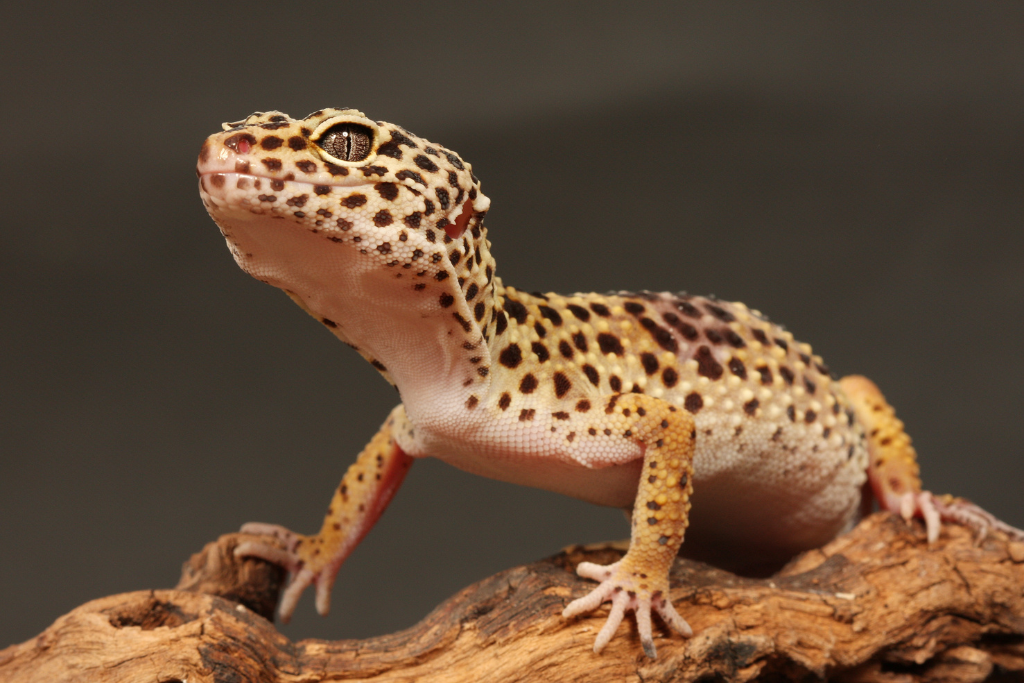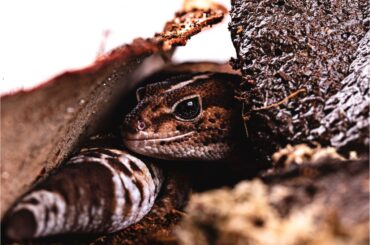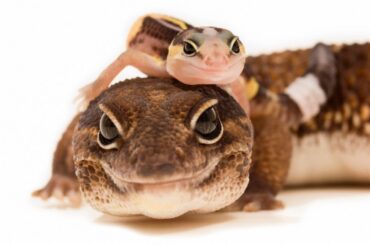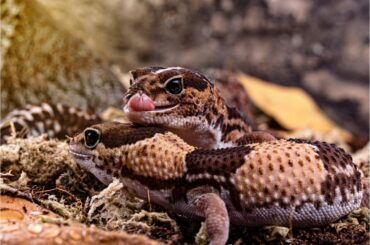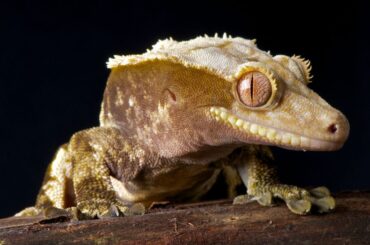Are you curious about the behavior of leopard geckos? Do you want to know if they make great pets? Most importantly, are you wondering whether leopard geckos bite?
Leopard geckos are fascinating creatures that can make wonderful pets. They are known for their agreeable temperament and calm demeanor, making them an ideal choice for reptile enthusiasts.
Their unique patterns and striking appearance add to their allure, making them a popular pet among many. However, a common concern among potential owners is whether leopard geckos bite.
Unlike some other reptiles, leopard geckos are not prone to aggression or biting. They can be docile and even suitable for younger children with proper handling.
Let’s find out the truth behind this concern and understand their behavior better.
Leopard Gecko Behavior and Temperament
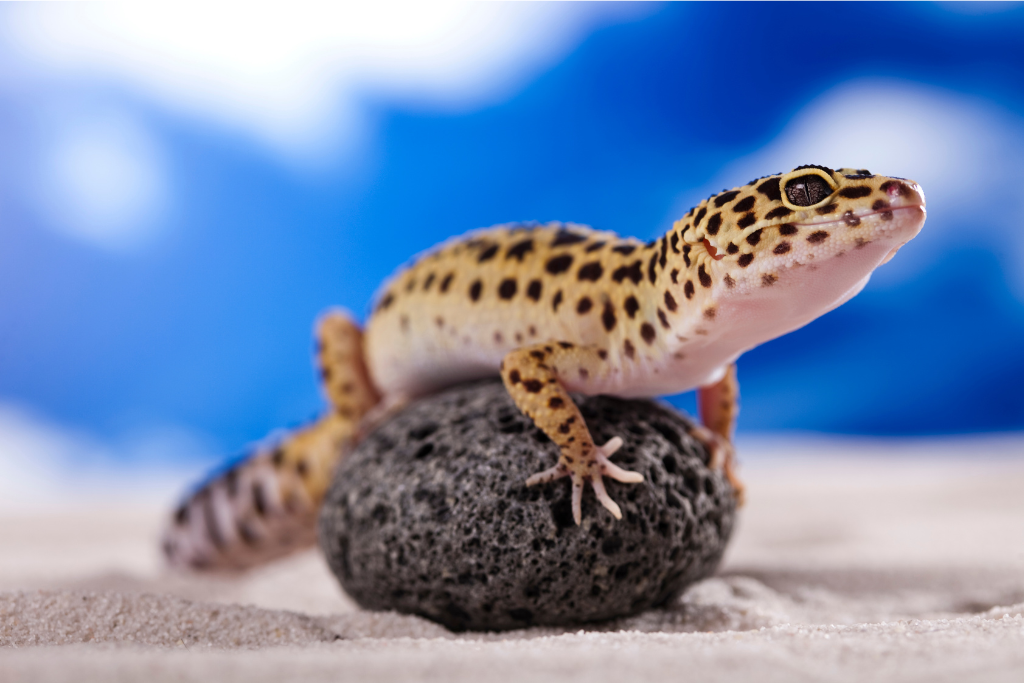
Leopard geckos are known for their calm and agreeable demeanor, which makes them easy to handle and interact with. They are generally not aggressive and rarely show any signs of biting. This makes them a popular choice for families looking for a reptile pet that people of all ages can enjoy.
Proper handling is crucial when it comes to leopard geckos. Respecting their boundaries and handling them gently is important to maintain their trust and prevent any potential stress or harm.
When interacting with your leopard gecko, it’s essential to avoid sudden movements and never grab or restrain them forcefully. Give them space and allow them to come to you, ensuring a comfortable and positive experience for you and your gecko.
Overhandling can pose risks to leopard geckos. Excessive handling can lead to stress, which may result in various health issues for the gecko.
It’s important to give your leopard gecko enough time to relax in its enclosure and provide hiding spots where they can retreat when they need privacy or solitude. Respecting their need for rest will contribute to their overall well-being and help maintain a healthy and happy gecko.
Factors Influencing Leopard Gecko Biting
Several factors can influence whether a leopard gecko is more likely to bite. These include their age and health, previous experiences with handling, stress or fear levels, and overall temperament.
Understanding these factors can help us better comprehend why a leopard gecko may resort to biting.
- Age and Health: Younger leopard geckos may be more likely to bite because they are still learning about their surroundings and may feel scared. Geckos that are uncomfortable or not feeling well may also bite to protect themselves.
- Previous Experiences: If a leopard gecko had bad experiences with being handled before, they might be more nervous or defensive in the future. It’s important to be patient, earn their trust, and give them positive experiences to help them feel safe.
- Stress and Fear: Leopard geckos can get stressed or scared in certain situations, like being handled too much, loud noises, or sudden environmental changes. When they feel threatened or anxious, they might bite to defend themselves.
- Temperament: Each leopard gecko has its own personality. Most geckos are calm, but some might be more likely to bite if threatened. Understanding your gecko’s temperament is important to have safe and friendly interactions with them.
- Environmental Factors: The gecko’s home and how it’s taken care of can affect its behavior. Having a good home with the right temperature, humidity, and places to hide can make a gecko feel more relaxed and less stressed.
Effects and Severity of Leopard Gecko Bites
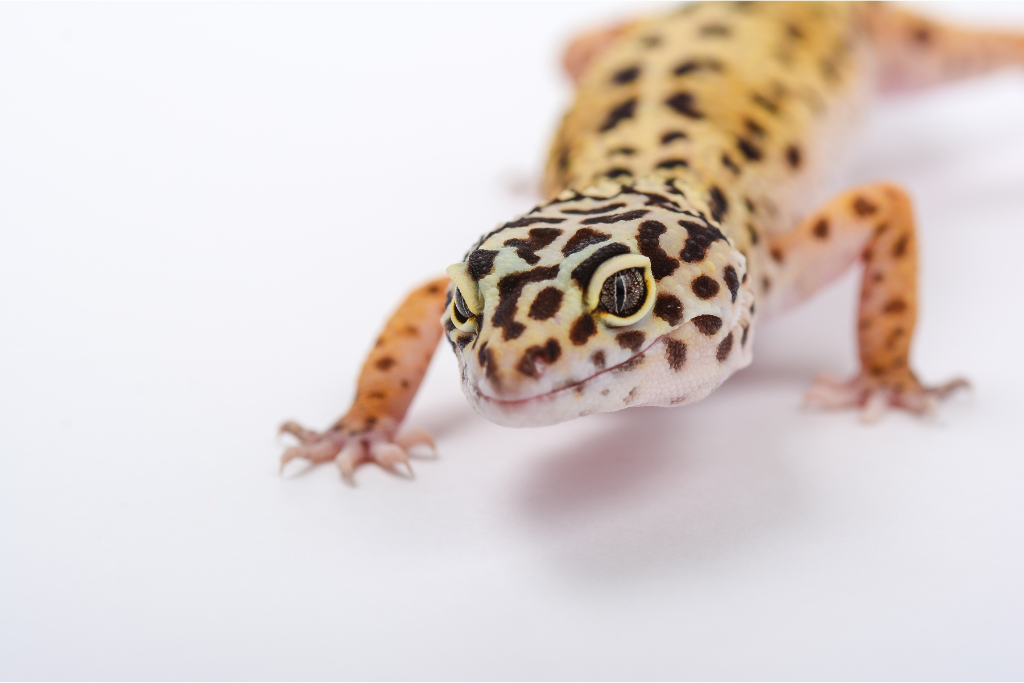
Leopard gecko bites are generally mild and rarely cause severe injuries. However, knowing the potential effects and taking appropriate measures if bitten is essential.
- Minor Puncture Wounds: Leopard gecko bites may break the skin and cause small puncture wounds. These wounds may result in redness, swelling, and slight bleeding.
- Discomfort And Pain: Bites can cause discomfort and pain, similar to a sharp pinprick or a minor sting.
- Infection Risk: Any open wound carries the risk of infection. It’s important to thoroughly clean the bite with mild soap and warm water to minimize the disease risk.
- Emotional Impact: Getting bitten by a pet can be a surprising or distressing experience. It’s important to address any emotional impact it may have and remain calm to prevent further stress for both you and the gecko.
- Rare Complications: While rare, more severe complications have resulted from leopard gecko bites, such as allergic reactions or localized tissue damage.
Preventing Leopard Gecko Bites
Preventing leopard gecko bites starts with understanding their behavior and needs. Here are some practical tips to minimize the risk of bites during handling:
- Approach With Care: Approach your gecko slowly and gently, avoiding sudden movements that might startle or provoke them.
- Respect Their Boundaries: Give your gecko space and avoid handling them when they show signs of stress or aggression.
- Proper Handling Techniques: Support your gecko’s body with your hands and avoid restraining or squeezing them tightly. Remember to handle them close to the ground or over a soft surface to prevent injury if they accidentally jump or fall.
- Avoid Handling During Shedding: Leopard geckos may be more sensitive and irritable during the shedding process. It’s best to avoid handling them during this time to prevent potential discomfort or stress.
- Supervise Interactions With Children: Adult supervision is essential if children are handling the gecko. Teach children how to handle the gecko gently and responsibly, emphasizing the importance of respecting the gecko’s boundaries.
What to Do If Bitten
Getting bitten by a leopard gecko can be an incredible experience, but there are steps you can take to address the situation.
- Stay calm: It’s important to remain calm and avoid any sudden movements that may startle the gecko further.
- Gently detach the gecko: Slowly and gently separate the gecko’s jaw from your skin without pulling or jerking.
- Clean the bite: Wash the bite thoroughly with mild soap and warm water to minimize the risk of infection. Pat dry with a clean towel.
- Apply an antiseptic: If the bite is deep or shows signs of inflammation, apply a mild antiseptic ointment to prevent infection. Consult a medical professional if needed.
- Monitor the bite: Monitor the bite for any signs of infection, such as increased redness, swelling, or pus. If the symptoms worsen or persist, seek medical attention.
Conclusion
Leopard geckos are intriguing and rewarding pets, known for their agreeable temperament and calm demeanor. While they are generally mild-tempered and not prone to biting, it’s crucial to understand their behavior and needs to prevent any potential bites.
By practicing proper handling techniques, respecting their boundaries, and providing a suitable environment, you can establish a positive owner-pet relationship and enjoy the companionship of these remarkable reptiles.
FAQs
Can Leopard Geckos Cause Severe Injuries with Their Bites?
No, leopard gecko bites are generally mild and rarely cause severe injuries.
Are Leopard Geckos Suitable Pets for Children?
Yes, leopard geckos can be suitable pets for children with proper handling and supervision.
How Can I Handle a Leopard Gecko Properly?
Approach them gently, support their body, and avoid sudden movements or forceful restraint.
What are the Risks of Overhandling a Leopard Gecko?
Overhandling can cause stress and potential health issues for the gecko.
What Factors Influence Leopard Gecko Biting?
Factors include age, health, previous experiences, stress levels, and overall temperament.
Can Leopard Geckos Cause Severe Injuries with Their Bites?
No, leopard gecko bites are generally mild and rarely cause severe injuries.
How Can I Prevent Leopard Gecko Bites During Handling?
Respect their boundaries, handle them gently, and provide a suitable environment.
What Should I Do if I Get Bitten by a Leopard Gecko?
Stay calm, gently detach the gecko’s jaw, clean the bite, and monitor for any signs of infection.
Can Leopard Gecko Bites Cause Infections?
Yes, any open wound risks infection, so proper cleaning is important.
Are Leopard Geckos Aggressive by Nature?
No, leopard geckos are generally not naturally aggressive, but individual temperaments may vary.

